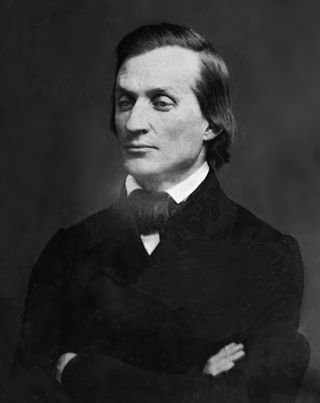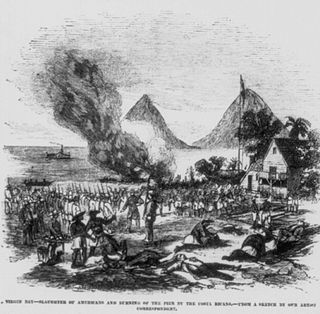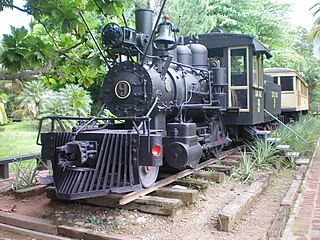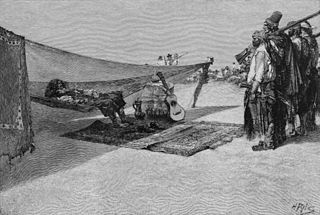Nicaragua is a nation in Central America. It is located about midway between Mexico and Colombia, bordered by Honduras to the north and Costa Rica to the south. Nicaragua ranges from the Caribbean Sea on the nation's east coast, and the Pacific Ocean bordering the west. Nicaragua also possesses a series of islands and cays located in the Caribbean Sea.

Central America is commonly said to include Guatemala, Belize, El Salvador, Honduras, Nicaragua, Costa Rica, and Panama. This definition matches modern political borders. Central America begins geographically in Mexico, at the Isthmus of Tehuantepec, Mexico's narrowest point, and the former country of Yucatán (1841–1848) was part of Central America. At the other end, before its independence in 1903 Panama was part of South America, as it was a Department of Colombia. At times Belize, a British colony until 1981, where English instead of Spanish is spoken, and where the population is primarily of African origin, has been considered not part of (Spanish-speaking) Central America.

The Football War, also known as the Soccer War or the 100 Hour War, was a brief military conflict fought between El Salvador and Honduras in 1969. Existing tensions between the two countries coincided with rioting during a 1970 FIFA World Cup qualifier. The war began on 14 July 1969 when the Salvadoran military launched an attack against Honduras. The Organization of American States (OAS) negotiated a cease-fire on the night of 18 July, hence its nickname. Salvadoran troops were withdrawn in early August.

The International Democracy Union is an international alliance of centre-right to right wing political parties. Headquartered in Munich, Germany, the IDU consists of 84 full and associate members from 65 countries. It is chaired by Stephen Harper, former prime minister of Canada. It has two affiliated international organizations and six affiliated regional organizations.

Solon Borland was an American politician, journalist, physician and military officer. He served as a United States Senator from Arkansas from 1848 to 1853. Later in life, he served as an officer of the Confederate States Army including commanded of a cavalry regiment in the Trans-Mississippi Theater of the American Civil War.

William Edward Miller was an American politician who served in the United States House of Representatives from New York as a Republican. During the 1964 presidential election, he was the Republican nominee for vice president, the first Catholic nominated for the office by the Republican Party.

William Walker was an American physician, lawyer, journalist, and mercenary. In the era of the expansion of the United States, driven by the doctrine of "manifest destiny", Walker organized unauthorized military expeditions into Mexico and Central America with the intention of establishing colonies. Such an enterprise was known at the time as "filibustering".

The Constitutionalist Liberal Party is a political party in Nicaragua.

The Nicaraguan Revolution began with rising opposition to the Somoza dictatorship in the 1960s and 1970s, the ouster of the dictatorship in 1978–79, and fighting between the government and the Contras from 1981 to 1990. The revolution revealed the country as one of the major proxy war battlegrounds of the Cold War.
Silvestre Selva Sacasa was a Nicaraguan politician of Basque origin, who, as a senator in the State Legislative Assembly, was appointed by the invading forces of Francisco Malespín to serve as provisional Supreme Director, served from 16 December 1844 to 20 January 1845 with headquarters in the city of Masaya.
Justo Abaunza y Muñoz de Avilés was a Costa Rican-born legitimist Nicaraguan lawyer and politician who served as acting Supreme Director of Nicaragua from 1 April to 5 May 1851, and as provisional Supreme Director appointed by José Trinidad Muñoz from 4 August to 2 November 1851.

The Filibuster War or Walker affair was a military conflict between filibustering multinational troops stationed in Nicaragua and a coalition of Central American armies. An American mercenary, William Walker, and his small private army were invited to Nicaragua in 1855. He seized control of the country by 1856, but was ousted the following year.
The Bryan–Chamorro Treaty was signed between Nicaragua and the United States on August 5, 1914. It gave the United States full rights over any future canal built through Nicaragua. The Wilson administration changed the treaty by adding a provision similar in language to that of the Platt Amendment, which would have authorized military intervention in Nicaragua. The United States Senate opposed the new provision; in response, it was dropped, and the treaty was formally ratified on June 19, 1916. Eventually, the United States recognized that the canal was unlikely, and at the request of Nicaragua in 1970, the two nations officially abolished the treaty and all its provisions.
The Democratic Party, renamed in 1893 as the Liberal Party, was a Nicaraguan political party in the 19th century. The power base of the liberal Democratic Party was in the city of León; while their conservative counterparts were centered in Granada. The Democrats were opposed to the Legitimists who expelled the Democrats from the constitutional assembly in 1853, driving them underground or into exile, and promulgated a constitution of 1854.
The First Battle of Rivas occurred on June 29, 1855, as part of the struggle to resist William Walker, an American filibuster, adventurer and mercenary who arrived in Nicaragua with a small army of mercenaries in June 1855 in support of the Liberal democratic government of General Francisco Castellón in the Nicaraguan civil war. His army, with local support, was able to defeat the Legitimist party (Aristocratic) and conclude the Nicaraguan civil war.

Honduras is a republic in Central America, at times referred to as Spanish Honduras to differentiate it from British Honduras, which became the modern-day state of Belize.
The modern history of Honduras is replete with large-scale disappearances of left-leaning union members, students and others. The legislature approved a new constitution in 1982, and the Liberal Party government of President Roberto Suazo Córdova took office. Suazo relied on United States support — including controversial social and economic development projects sponsored by the United States Agency for International Development — during a severe economic recession. According to the US State Department, "Honduras became host to the largest Peace Corps mission in the world, and non-governmental and international voluntary agencies proliferated."

Between 1665 and 1857, Caribbean pirates and filibusters operated in Lake Nicaragua and the surrounding shores. The Spanish city of Granada, located on the lake, was an important trading centre for much of its early history so it was a prime target for pirates such as Welshman Henry Morgan and freebooters like William Walker.

The Battle of La Virgen occurred on 3 September 1855, at La Virgen, Nicaragua. It was part of the Legitimist efforts to resist the newly arrived force of William Walker, who had the support of the fierce opponents of the Legitimists, the Democrats. After a hard-fought but one-sided skirmish, Walker's forces emerged victorious, giving the cause of the invading Filibuster army legitimacy, and inspiring many new volunteers to join his force.











